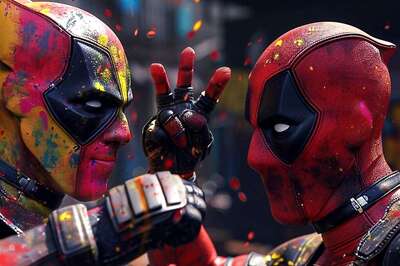
views
CHENNAI: “There can be a legend without life, but no life without legends. Legends are deathless; lives are mortal. Netaji is a legend of life, in times of lifeless living.And Sugata Bose has given us a taste of legend,” said Gopalkrishna Gandhi on the occasion of the release of His Majesty’s Opponent, a work on the “rebellious son,” as described by Mahatma Gandhi, and his struggle against the British Empire.In a meet organised jointly by the Madras Book Club, Aspen Institute, India, and Penguin Books, India, Gopalkrishna Gandhi released the book to a great applause, before introducing it to an eager audience.“When Subhas was born in 1897, Gandhi was 28, Subramaniya Bharathi was 18 and Nehru was 8. Had Bharathi lived just two or three years more, he would have heard of the young Bengali who was studying in Cambridge, and spurned the ICS, because he thought “the only way to end a government is to withdraw from it. In 1923, when Subhas was elected president of the All India Youth Congress, he was just 27.Had Bharathi known and met Subhas, history would have had from Bharathi’s phenomenal pen, a song, a celebration. Singing Adainthuvittom, Adainthuvittom, he would have brought the young leader into his song in his own way, and placed a coronet of promise on his forehead.” In the emotion-filled hours that followed, Gopalkrishna Gandhi said that “Sugata Bose has helped history to record history honestly. His book tells the story that has not been told.” The author himself admitted, “I wanted to try and show in this book that historical narrative need not be less attractive or appealing than a fictional narrative, except that the story I have told is true.” An eager question-andanswer session followed, going back and forth between Netaji’s stand on the Hindu Mahasabha, to his controversial alliance with Hitler, to how his death shaped public perception. Gandhi and Bose, it is well-known, did not see eye-to-eye on certain issues, but the affection between them, all agreed, was obvious. “You are irrepressible whether ill or well,” Gandhi wrote, to Bose before his escape from Calcutta, “Do get well before going in for fireworks.”




















Comments
0 comment